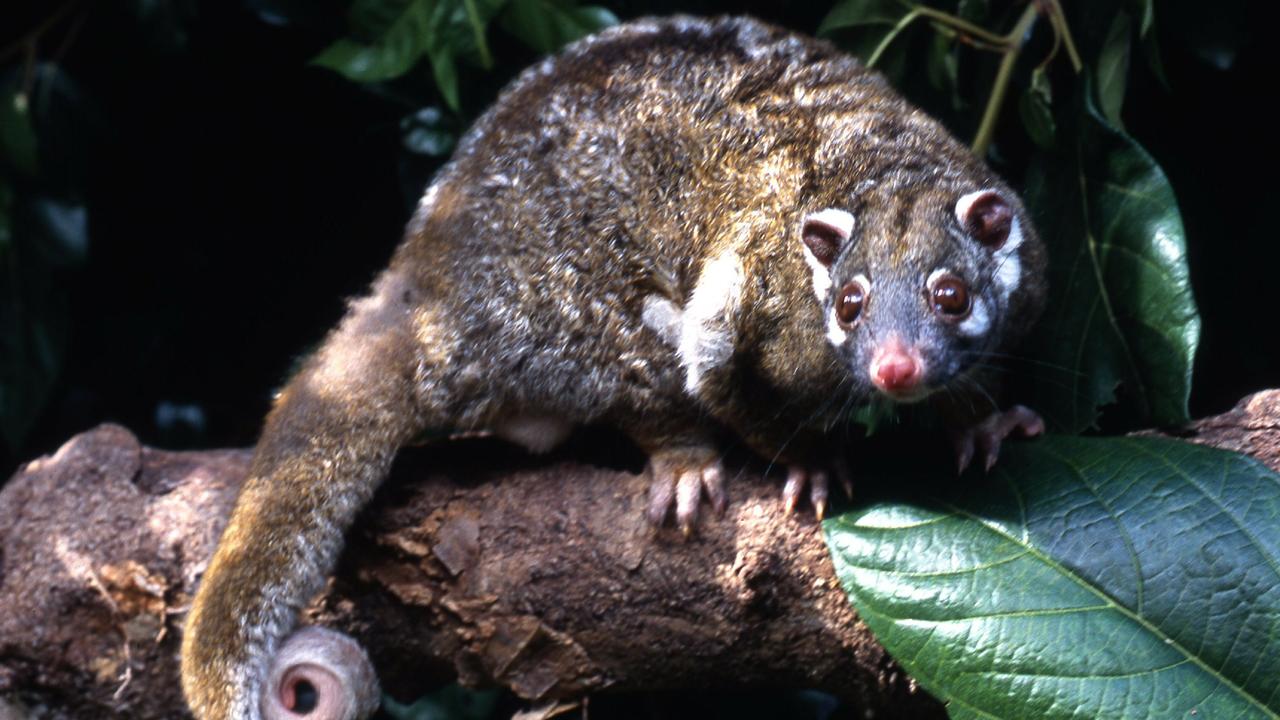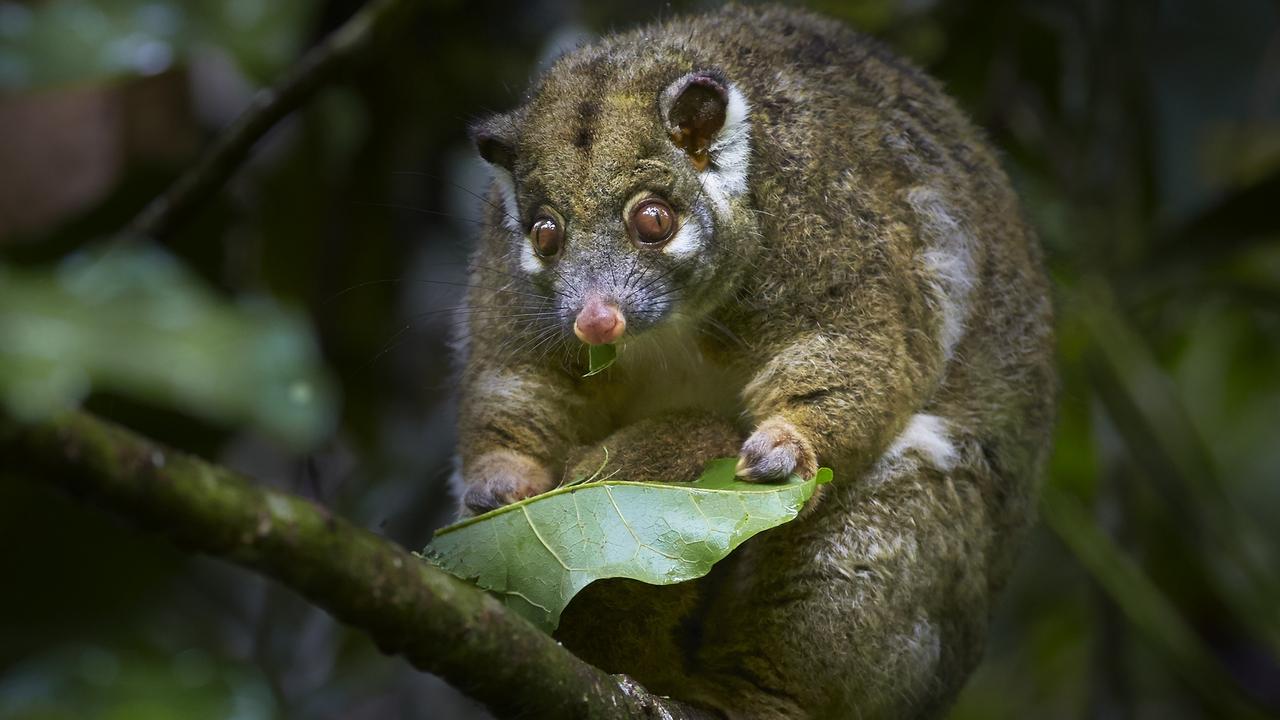Climate change extinction threat to ringtail possums in wet tropics
Ringtail possum numbers are in rapid decline in Australia’s wet tropics as the species struggles with rising temperatures caused by climate change

READING LEVEL: GREEN
Climate change could force the extinction* of ringtail possums in the Wet Tropics* by 2050 if current trends continue, according to a new study by James Cook University researchers.
The paper*, by Stephen Williams and Alejandro de la Fuente, found that possum species which evolved* in the cool mountain top forests were struggling with increased temperatures and had rapidly declined over the past three decades.
“So, in the lower parts of the mountains, where they were already at the edge of their heat tolerance*, they are disappearing and their distribution* is contracting* further and further up into the mountains,” Professor Williams said.

Four species of ringtail possums live in the Wet Tropics of Far North Queensland: the lemuroid ringtail, green ringtail, Herbert River ringtail and Daintree River ringtail.
Professor Williams said the study’s findings had led him to nominate the lemuroid ringtail possum as endangered* through the Environment Protection and Biodiversity* Conservation Act*.

Other studies have found that possums are not the only species under threat.
“We’ve just listed 13 species of birds in the Wet Tropics as threatened. They’ve lost 30 per cent to 50 per cent of their total population size,” Professor Williams said.
“Species endemic* to the region and other specialist birds are declining the fastest, and species of birds that were common in the lowlands* are now moving higher up the mountains.”
He said that even a moderate* reduction in carbon emissions* would help reduce extinction rates of wet tropics species.
But it was also important to explore ways to help threatened species adapt to the changing climate, he said.
“For example, what this paper shows us is there’s a big difference in the impacts of heatwaves versus long-term change,” Professor Williams said.
“Some species are most impacted by heatwaves, while others are declining in association with gradual climatic change. That makes a difference as to what you would do and how we might approach reducing these impacts.”

The study was supported by JCU, the Skyrail Foundation, the Indigenous environmental organisations Abriculture, the Queensland Department of Environment and Science, the Wet Tropics Management Authority (WTMA), the Earthwatch Institute, the Rainforest-CRC, the Marine and Tropical Research Facility, and the National Environmental Research Program.
GLOSSARY
- extinction: when a species no longer exists
- wet tropics: rainforest area of Far North Queensland that receives a high level of rainfall during the summer months
- paper: published results of a study or research
- evolved: developed or adapted gradually
- tolerance: the ability or willingness to put up with something
- distribution: the spread of something over an area
- contracting: decreasing in size, number or area
- endangered: at serious risk of extinction
- biodiversity: the variety of plant and animal life in particular habitats
- Act: a law that as been passed by parliament
- endemic: belonging or native to a particular place
- lowlands: areas where the land is at, near or below sea level
- moderate: not small or large
- carbon emissions: gases that enter the atmosphere from the burning of fossil fuels, causing global warming
EXTRA READING
DNA database to help save Aussie species
Spotlight on backyard threatened species
Koalas to be listed as endangered
QUICK QUIZ
- What is causing the rapid decline of ringtail possums in the wet tropics?
- Which university are the researchers from?
- What four species of ringtail possums live in the wet tropics?
- Which of these four species has Professor Stephen Williams nominated as endangered?
- What other species, besides possums, are under threat in the wet tropics?
LISTEN TO THIS STORY
CLASSROOM ACTIVITIES
Acclimatising possums
Professor Williams states in the article that it’s important to explore ways to help these threatened species adapt to the changing climate. How each species handles long-term climate increases versus short-term heatwaves also makes a difference as to what you would do and how they might approach reducing these impacts.
Work with a partner to brainstorm three different ways that you might go about helping this species cope with higher temperatures from both short-term and long-term change.
1.
2.
3.
Time: allow 30 minutes to complete this activity
Curriculum Links: English; Science; Personal and Social; Critical and Creative Thinking
2. Extension
If the lemuroid ringtail possum is listed as endangered, what changes should be made for the treatment of that species and its habitat?
Is it a good thing to get this species of possum on the official endangered list?
Time: allow 15 minutes to complete this activity
Curriculum Links: English; Science; Critical and Creative Thinking
VCOP ACTIVITY
To sum it up
After reading the article, use your comprehension skills to summarise in a maximum of three sentences what the article is about.
Think about:
What is the main topic or idea?
What is an important or interesting fact?
Who was involved (people or places)?
Use your VCOP skills to re-read your summary to make sure it is clear, specific and well punctuated.


